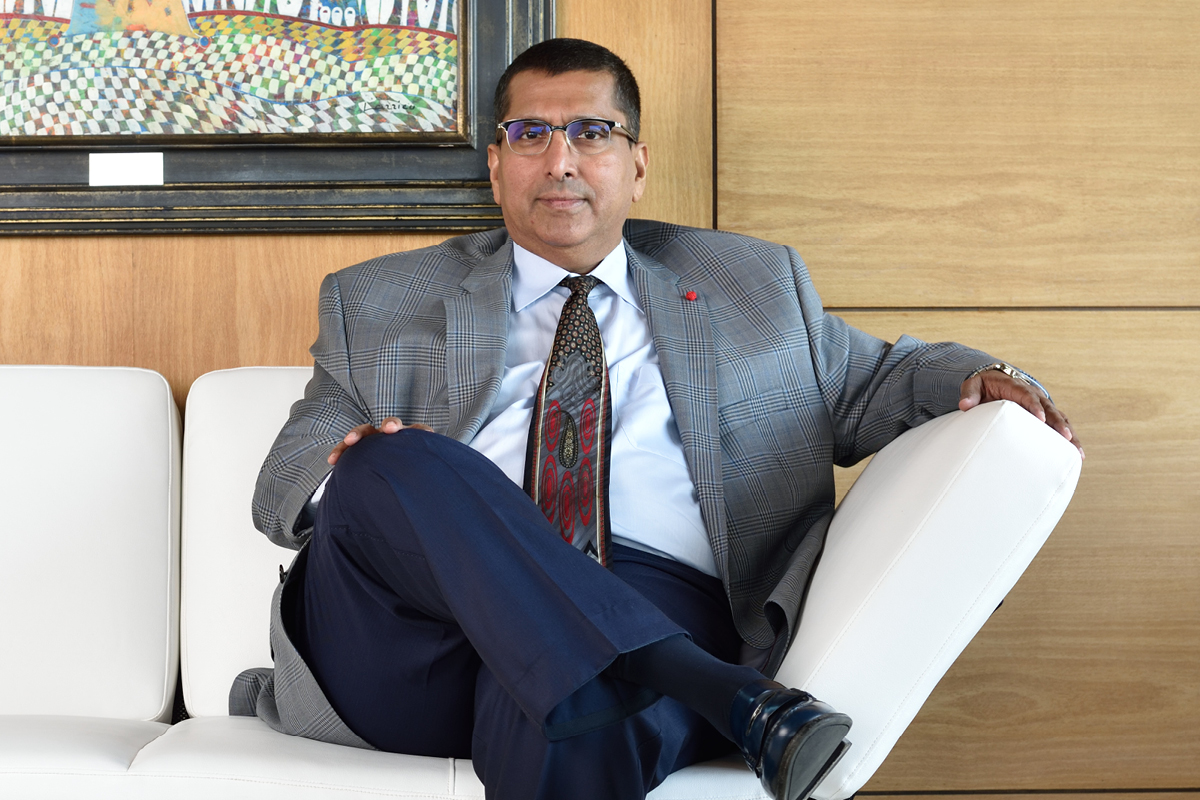Manoj Tirodkar was in London when news broke of a corruption scandal within the Indian telecommunications sector. While his company, Global Group, wasn’t implicated, he knew the ramifications would be disastrous. Twelve months earlier, GTL Infrastructure Limited (GTL Infra), an enterprise of the Global Group, had brought on lenders to acquire Aircel’s telecom tower business Chennai Network Infrastructure Limited (CNIL) for an eye-watering US$1.8 billion sum.
It was anticipated the investment would see GTL Infra become the world’s largest independent and neutral tower company, boasting a portfolio of more than 32,500 towers across India. The time was ripe for expansion too, with the Indian government moving to privatise the spectrum. Of course, he and his executive committee couldn’t have foreseen what was to unfold.
In February 2012, the Supreme Court of India revoked more than 100 telecom licences that had been issued in 2008 by the then minister for communications and IT, A Raja. Coined the ‘2G spectrum scam’, politicians and government officials were alleged to have illegally undercharged mobile telephone companies for frequency allocation licences, which they then used to create 2G subscriptions for cell phones.
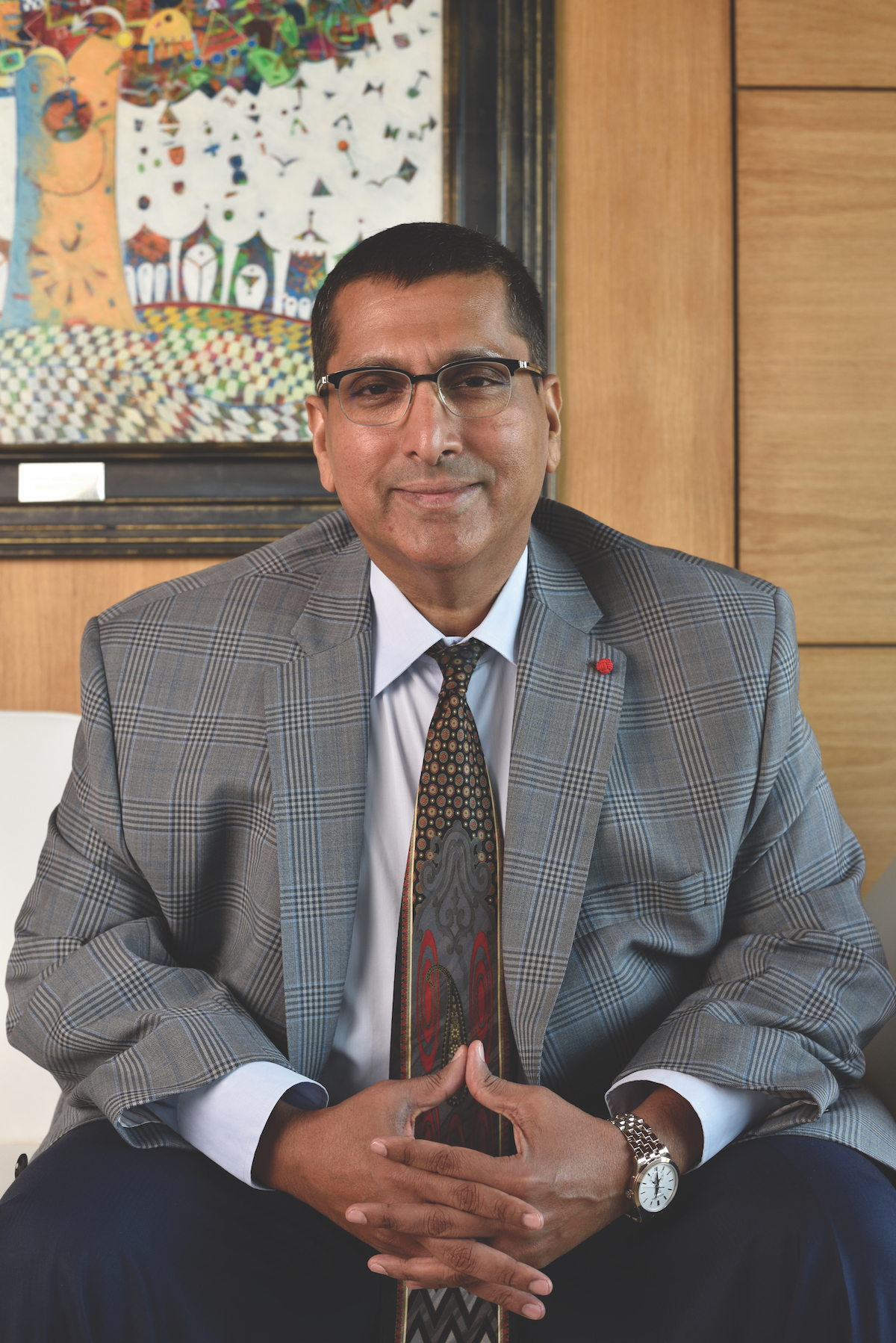
GTL Infra was completely free of culpability, but many of its customers weren’t. As a result, it lost much of the business it relied upon. The company’s once optimistic financial forecast quickly turned precarious. “We were not a party to that huge telecom scam, but we were the collateral damage,” Manoj explains, “because every one of our customers that had one of those licences, and were using our products, our services or our network, collapsed overnight.
Our US$1.8-billion investment in infrastructure, one of India’s biggest acquisitions of all time, came to a grinding halt.” The Group would also later lose more than US$9 billion in contracted revenues and US$1.5 billion in contracted EBIDTA during 2011–17.
So here was Manoj, more than 7,000 kilometres from the turmoil that had just engulfed India’s telecom sector, facing a sliding doors moment. There were two ways he could approach the situation, and the easiest would have been to simply turn his back on his investors. “I was in London with unlimited leave to stay, which means I could have remained there – I had given no personal guarantee or security to our lenders at that time. But I didn’t see that as an option,” he recalls.
“As soon as I became aware of the trouble, I took the next flight home, because I was committed to our lenders, customers and employees. We have stood up; we have continued to pay all our obligations to our employees, and all our taxes to the government. We are not in default. There’s a lot being spoken about the bad loans and non-performing loans in China or in India. But there are many entrepreneurs – and I am one of them – that have remained committed to a turnaround.”
I took the next flight home, because I was committed to our lenders
A corporate debt restructuring program, which included lenders taking a haircut, kept the company afloat long enough for Manoj to formulate a more sustainable solution – and last September, he rolled out that fix, in the form of a strategic debt restructuring (SDR) scheme.
Lenders accepted the proposal to convert existing debt into equity and become major shareholders. Manoj’s majority stake of 80% was reduced to 27%. He refused to claim a wage as promoter, and even contributed a further US$170 million of liquidity during the process, pushing the total equity contribution towards the US$1-billion mark.
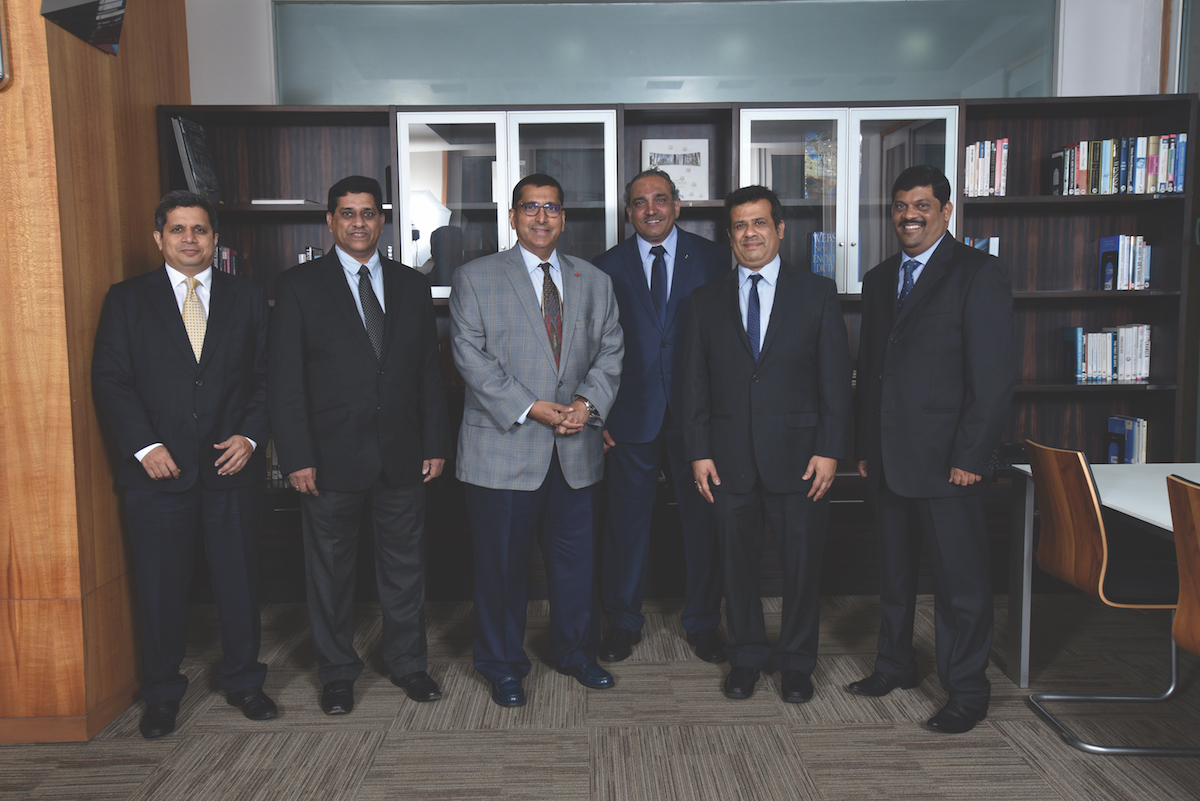
As a result of the shake-up, the combined entity, GTL Infra and CNIL, have now all but secured
a debt-free future. In fact, Manoj claims that if all goes well, the company will need no more than two years to break even, and four years to repay the full debt. While at the peak of the downturn, Global Group’s debt was at US$3 billion, today that sum has already been reduced significantly to US$700 million for the tower business.
“We had to write-down a lot of assets, we had to take a lot of write-offs, and we had to restructure. But despite all that, our utilisation on the network, on our cost ratios, and our funding has swelled,” he says proudly. “It took a lot of my energy, and most of all in the past seven years I haven’t had the ability to do anything new. I had to shelve my creativity because of my strong sense of commitment to the lenders. There wasn’t any time to experiment as an entrepreneur.
It’s sad, but it’s something that had to be done. All of my focus had to go into rebuilding these businesses to ensure we’d be able to eventually repay the lenders.” Rather than look back with resentment at the predicament GTL Infra unwittingly became entangled in, Manoj says the challenge has brought enlightenment. “It has actually taught me that simply building new capacities or a big business will not be acceptable because the marketplace of today is all cashflow driven,” he explains.
“It’s not about valuation anymore. So, for example, in 1999 the Group built a company that we sold for a valuation of US$1.1 billion. Today, when you do the same thing 20 years later, it is cashflow that will drive the value. Through this process, we have been able to prove that our businesses have a US$250-million cashflow, which could possibly grow to US$300 million over the next two years. This means, on the basis of the global parameters that are applied to tower companies, our businesses are now worth close to US$3.5 billion moving forward.”
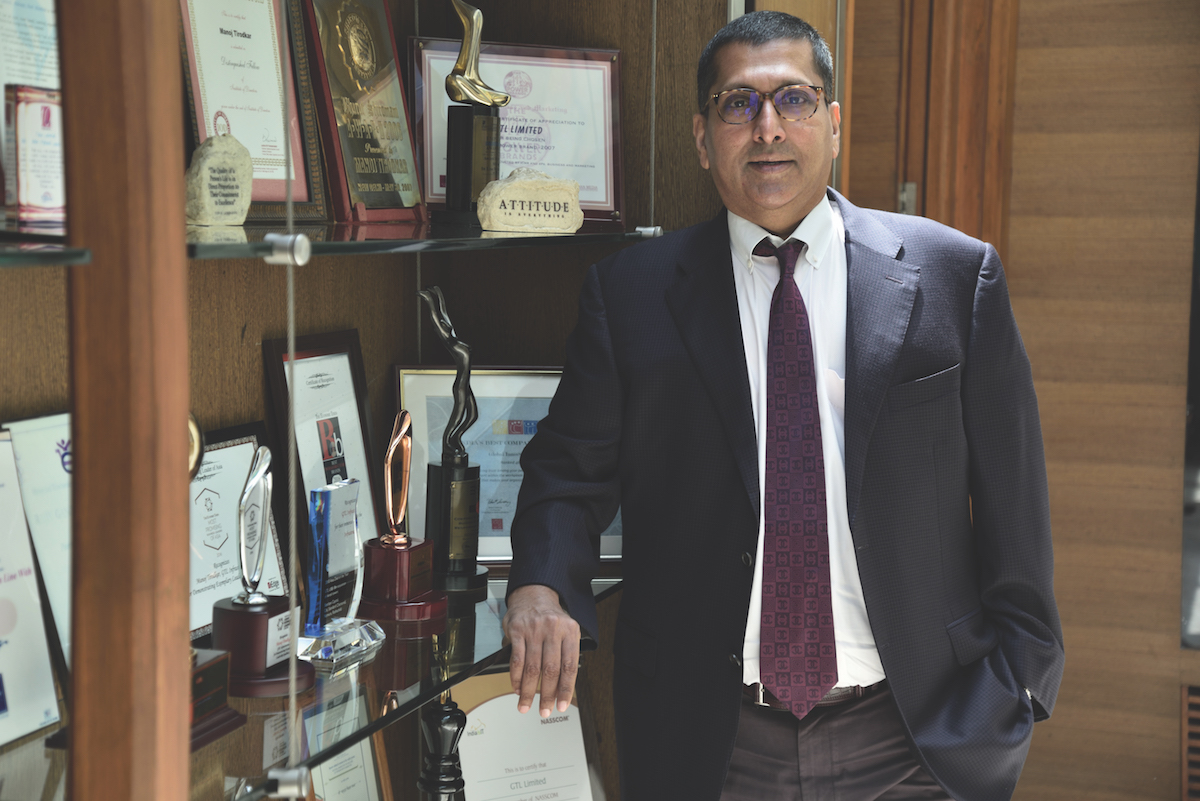
Along with GTL Infra and CNIL, the other enterprise within the Global Group is GTL Limited, which remains India’s largest network services player. For any businessperson, it’s an envious portfolio, but for a first-generation entrepreneur it is particularly dazzling. Manoj was the first Indian to win the prestigious ‘World Young Business Achiever Award’, he scooped the Confederation of Indian Industry’s (CII) ‘Young Entrepreneur Trophy’, and has been crowned ‘Telecom Man of the Year’.
Maintaining his revered reputation within the telecom world was another motivating factor in his decision to commit to the rebuild of GTL Infra. “In India, you are looked down on if you have to go to bankruptcy court to restructure,” he reveals. “Also, the Indian landscape is not really conducive to companies looking to get out of debt trouble. Fortunately, we didn’t end up having to go » through bankruptcy court and were able to stabilise.”
Even that could be considered an understatement, considering GTL Infra’s current standing on the world stage. “We are the sixth-largest telecom tower company in the world, not just in India,” Manoj continues. “We provide telecom towers for cellular operators. So big companies like Vodafone, Reliance JIO, Bharti Airtel, Aircel and Idea use our infrastructure. Actually, the uniqueness of our business is that we were the only players that built infrastructure while not being a telecom operator. We are merely an infrastructure provider.”
It is one of the most remarkable corporate turnaround stories in India’s history – but not at all surprising when you consider the man at the helm. Manoj was a wunderkind, whose journey began in the offices of his family’s Mumbai shipyard during school holidays. From there, he dropped out of college and enthusiastically accepted an offer from one of his father’s associates to gain work experience in Germany. He then became a distributor for Apple in 1987, and not long after built one of India’s first electronic commerce unicorns, monetising the company for US$1.1 billion as a 35-year-old in 1999.
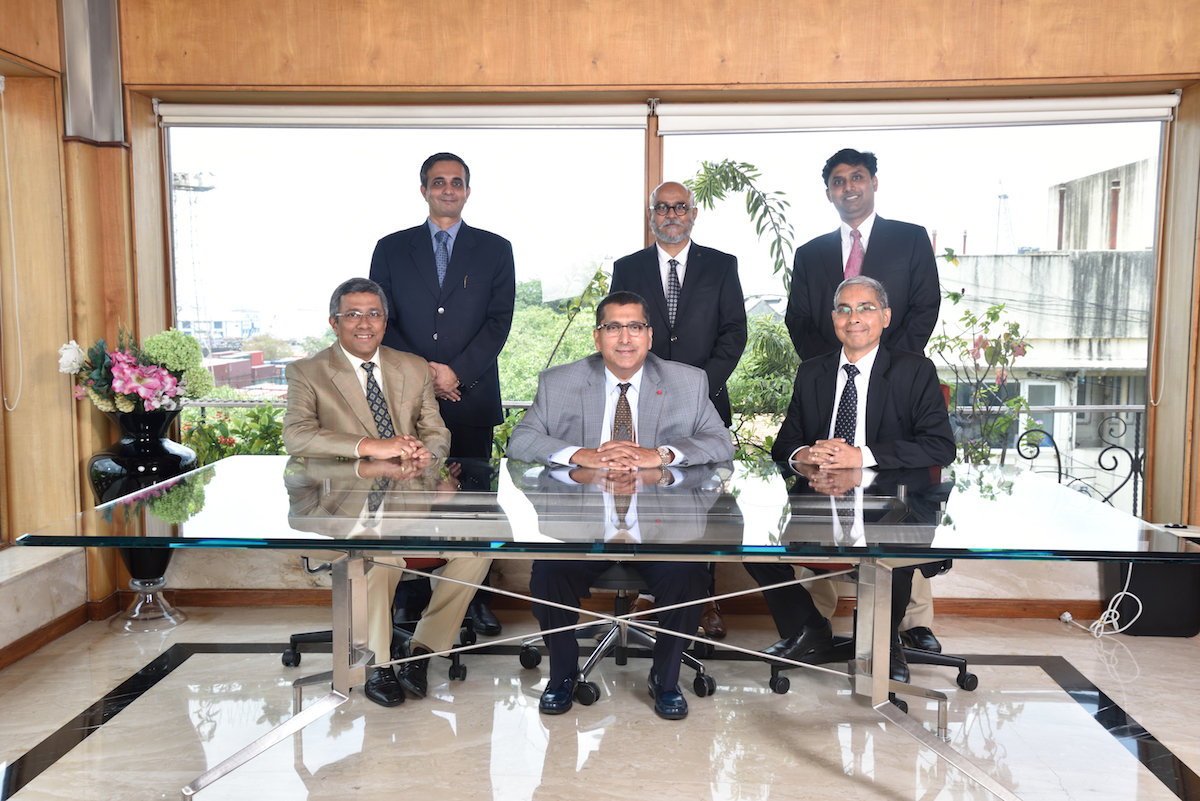
“I used that capital to build infrastructure, and then developed a telecom network company that has weathered all storms,” he says. With Manoj as a pioneer of integrated telecom play based on network services and telecom infrastructure, his contribution to India’s digitisation cannot be undervalued. “It’s that connectivity from the tower to your smartphone,” he explains. “When you use your smartphone and you start another data, voice, or any kind of a link, you’re connected to the nearest telecom tower.
“So whether it’s the company global ecommerce services we built 25 years ago, or whether it’s
our company now that provides in-building coverages, or whether we have the towers and related e-connectivity to the end user, I think we play a very important role in a digital India. We are in
the ecosystem, in the thick of it, and it’s inconceivable that you can clearly be a part of the ecosystem without players like us. Whether it’s maintaining networks, managing networks or providing the towers, we are there all the way.”
Manoj regularly shares his inspirational life story as a guest lecturer at some of India’s most prominent business colleges, and the moral is always the same. “I tell them you have to work hard and
be persistent; nothing important comes easily,” he offers. The next time he addresses a hall full of eager academics, that message will hold even more weight. For he’ll be able to tell them about the miraculous turnaround of GTL Infra: how, against all odds, he and his team pulled the tower provider from the clutches of bankruptcy and repaid the lenders substantial amounts.
“In a way, I’m glad this journey of 35 years has thrown up these challenges, because it has allowed me the joy of saying that at the end of the tunnel, ‘We have delivered!’” Manoj grins. “We never left our stakeholders behind, and now all of them, from the lenders and shareholders to the employees, are being rewarded. I could’ve easily just said ‘Bye-bye’ seven years ago and stayed in the UK, but I’m glad I did what I did because you get an immense satisfaction from a job well done.”
Giving back
Decades before India introduced mandatory corporate social responsibility (CSR), the Global Group made philanthropy a permanent facet of its operations. Founder Manoj Tirodkar says the moral fibre of the company has a lot to do with his upbringing.
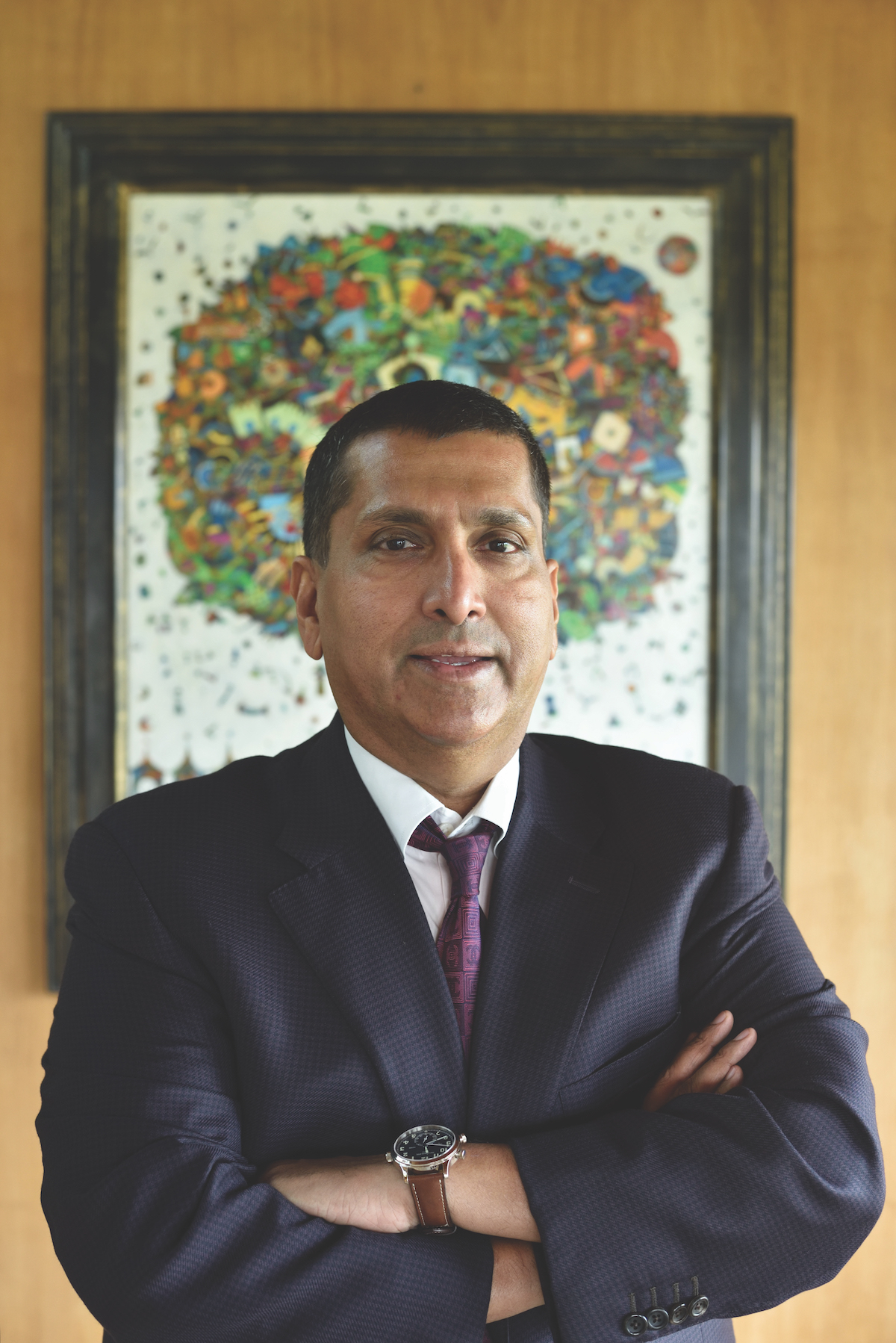
“About two years ago, the government made it mandatory for corporations to spend two per cent of their net profit on CSR. That’s great, but we started in 1994, 23 years earlier, when there was no such thing,” he explains.
“As a college drop-out who went to a school in a village, I’ve always been aware of the help that so many people in our society need. Most corporates have been fortunate enough to build a fortune. I had US$10,000 when I started, and at my peak I had a net worth of close to US$1 billion. But regardless of my worth, I’ve always put away a certain amount to help the disadvantaged.
This is something that ought to be done, because there are millions and millions of people in our country who really need entrepreneurs like myself to do something to help them. Now it’s become a national cause, I’m not the only guy. There are many other Indian entrepreneurs who are doing big-time philanthropy.
“There’s no better feeling than when we make a difference in people’s lives, and there are many examples that stand out for me. We’ve helped a group of blind people through chess and cricket tournaments. And when the tsunami hit the south coast of India in the state of Tamil Nadu and some of the villages got wiped out, we helped to rebuild them. Also there are many cases where we have helped fund expensive surgeries for people without insurance or money.
“Currently, the Global Foundation, a public charitable trust of the Global Group, is working on several projects, largely revolving around computer literacy for disadvantaged children and the physically impaired. At the end of the day, India can’t become a developed nation by 2020 if we neglect and leave behind five per cent of the population suffering from various physical challenges.”

